
January’s Topic of the Month – Diet & Healthy Eating
 February 02nd, 2017
February 02nd, 2017 Nakita Cambow
Nakita Cambow Blog
Blog 0 Comments
0 Comments
The foods that you eat will make a difference to your lupus. There are some foods that you should avoid and others which may help to keep you healthier, but there is no simple answer which will cure your lupus symptoms
The benefits of healthy eating
Ensuring that you have a healthy balanced diet is an important part of managing your lupus. A balanced diet means eating the right amount of foods from all the food groups. You can learn more about the five main food groups HERE.
Eating a nutritious, balanced diet will help you improve your overall health. In particular, a balanced diet can help:
- Reduce your risk of heart disease and high blood pressure
- Reduce your chances of getting cancer
- Increase energy levels
- Maintain a healthy weight
- Improve your bowel health
- Improve the health of your skin, nails and hair
–
Certain people may need to follow a slightly different diet. For example, pregnant women need to avoid eating certain foods; people with lupus nephritis (lupus affecting the kidneys) need to follow advice from their hospital dietician; and dietary advice for people over 60 and for children of various ages may also be different. The British Nutrition Foundation provides further advice and information about healthy eating and alternative diets. You can also find a lot more information in the links for further reading at the end of this article.
The importance of maintaining a healthy weight with lupus
Many people with lupus have issues with their weight, either the illness causes them to lose weight or they may experience weight-gain as a result of autoimmune thyroid disease, a side-effect from steroid treatment or decreased activity levels resulting from fatigue and pain.
“I try so hard but steroids tell me to eat cake! I’ve managed to lose 1kg over a week or so counting calories but it’s very hard!”
“NHS dieticians seem to specialise in those struggling to lose (rather than gain) weight in my experience. On my initial consultation I was given a booklet with advice based on eating a full English breakfast, then snacks like doughnuts and pork pies. My sons would be thrilled to get medical advice to eat like that! The nutritional supplements they offer taste extremely artificial to me. I can only eat a little and very slowly, so get to ‘savour’ every sip of it. I’m trying protein shakes I buy myself, which taste better, but just one of those is very filling.”
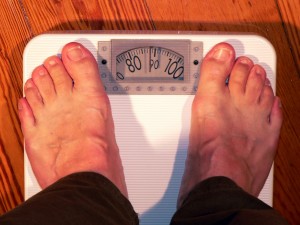 Theoretically, weight-gain with fat increases activity of the immune system, subsequently requiring increased needs for medications such as steroids, which in turn causes even more weight-gain. It is easy to see that this could become a vicious cycle.
Theoretically, weight-gain with fat increases activity of the immune system, subsequently requiring increased needs for medications such as steroids, which in turn causes even more weight-gain. It is easy to see that this could become a vicious cycle.
Being overweight also increases the chances of developing cardiovascular complications such as strokes, heart attacks, and blood clots; this, as a group, is the most common cause of death in people who have lupus. Therefore, dieting to lose weight (if starting out overweight) should be a dietary goal of anyone who has SLE.
“I follow Slimming World Healthy Eating and lost seven stone. Unfortunately I stopped going and put on 1.5 stone but am back at meetings now to lose that. I would recommend Slimming World to anyone. It can help anyone, even if they are on steroids or other medication. You don’t need to exercise either; I cannot do any exercise.”
“For those who have the problem of gaining weight when on corticosteroids: cutting carbohydrate significantly does work to help avoid weight gain (especially the fat deposits in the usual places) and it helps you lose weight when you have already put it on, even while still taking the steroids.”
Which diet is best for people with lupus?
The best diet to follow is one which contains a good balance of varied foods, and one which you feel you can stick to. There are many diets around, some are useful, others can be too extreme, or too complicated to follow when you have limited energy and particular needs. If you have lupus nephritis it is important that you follow the advice from your hospital dietician.
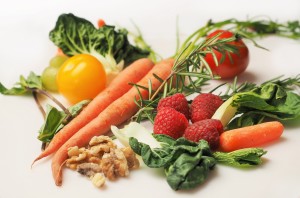 Lupus affects people in many different ways, so there is not one diet which is guaranteed to work for everyone, but the Mediterranean diet (plenty of fruit and vegetables, grains, nuts and seeds, two portions of fish per week and small amounts of meat and dairy produce) is probably the simplest one to follow and is suitable for all the family as it is a pattern of healthy eating.
Lupus affects people in many different ways, so there is not one diet which is guaranteed to work for everyone, but the Mediterranean diet (plenty of fruit and vegetables, grains, nuts and seeds, two portions of fish per week and small amounts of meat and dairy produce) is probably the simplest one to follow and is suitable for all the family as it is a pattern of healthy eating.
“My hubby Philip, a lupus sufferer, says he’s felt better since joining me on the Slimming World Healthy Eating Plan and he loves trying out their recipes.”
There is a wide range of diets advertised to help you lose weight quickly or control various chronic diseases, such as lupus. Many people claim to be experts in nutrition yet have limited knowledge and offer no protection to the public. You should be wary of unqualified practitioners who may be offering unproven techniques to diagnose and treat nutritional problems.
 Fad-diets can be tempting as they offer a quick-fix to a long-term problem. However, they can risk your health. You should follow advice from a doctor or dietician when seeking to change diet. The best way to lose weight and keep it off is to make healthier choices, eat a nutritionally balanced and varied diet with appropriately sized portions, and be physically active. For advice on exercising with lupus, you can read our article HERE.
Fad-diets can be tempting as they offer a quick-fix to a long-term problem. However, they can risk your health. You should follow advice from a doctor or dietician when seeking to change diet. The best way to lose weight and keep it off is to make healthier choices, eat a nutritionally balanced and varied diet with appropriately sized portions, and be physically active. For advice on exercising with lupus, you can read our article HERE.
“I’ve sworn off all dieting and plans. I believe I just need to develop healthy lifestyle rather than a fad, so I think going on diets is a bad idea. Changing your lifestyle is a better way of looking at it.”
The British Dietician Society has published a helpful food fact sheet about fad-diets which highlight some of the warning signs you should look out for. You can read and download this factsheet HERE.
“I have had severe lupus for over twenty years and find that diet doesn’t really change any symptoms. I eat meat, fish, dairy, gluten and sugar too…all in moderation. I eat lots of fruit and veg and avoid processed foods. The only thing I avoid is alcohol. I guess everyone is different but a well-balanced, healthy diet with exercise (when I’m up to it) is my formula.”
Are there any foods I should avoid with lupus?
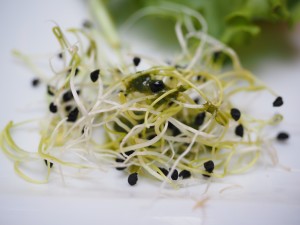 The main food to avoid is alfalfa sprouts. Alfalfa is used in cattle feed in many countries and the sprouting shoots of this are sold in some health food stores, but are not included in most packaged salads. Check the label before you buy anything like this to make sure. There have been case reports of alfalfa sprout ingestion causing the onset of SLE. Alfalfa and mung bean sprouts contain high levels of L-canavanine, an amino acid protein that stimulates the immune system.
The main food to avoid is alfalfa sprouts. Alfalfa is used in cattle feed in many countries and the sprouting shoots of this are sold in some health food stores, but are not included in most packaged salads. Check the label before you buy anything like this to make sure. There have been case reports of alfalfa sprout ingestion causing the onset of SLE. Alfalfa and mung bean sprouts contain high levels of L-canavanine, an amino acid protein that stimulates the immune system.
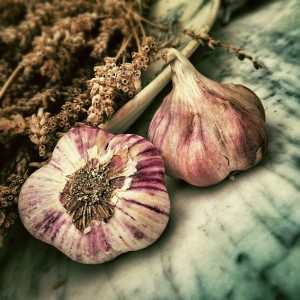 Some doctors advocate staying away from garlic, which contains substances (allicin, ajoene, and thiosulfinates) that can potentially increase immune activity. However, according to Donald E. Thomas Jr. in ‘The Lupus Encyclopedia’;
Some doctors advocate staying away from garlic, which contains substances (allicin, ajoene, and thiosulfinates) that can potentially increase immune activity. However, according to Donald E. Thomas Jr. in ‘The Lupus Encyclopedia’;
“…I do not see enough evidence to make this recommendation myself. In fact, garlic is actually used by some alternative and complementary medical practitioners to decrease inflammation. In addition, there is no medical evidence showing increased lupus activity due to eating garlic.”
Other foods which are best avoided are;
- Saturated and ‘trans’ fats (to learn more about these, and see examples of foods containing high levels, CLICK HERE)
- Too much sugar
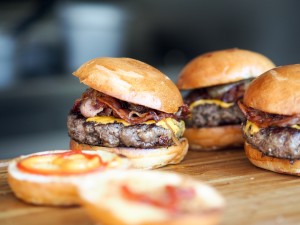
- Too much salt

- Foods which are highly processed
–
These foods are not helpful and most of them contribute to raising the risk of coronary heart disease; there is an increased risk of this in people with lupus, so you will protect yourself by reducing the amount of these you consume. The recommended daily amount of salt should not be more than six grams, which is approximately one teaspoonful; many processed foods are highly salted which means that it’s really easy to exceed this amount. Instead of seasoning your food with salt, try using lemon juice or herbs to enhance its flavour.
“I tend to suffer from fatigue. About a year ago I made some changes to my diet; I cut out as many processed foods as I could and now start the day with porridge with blue/red fruits (i.e. blackberries, blueberries or cranberries). I now go to bed and get up at the same times every day and I started walking everyday too. I feel much better and sleep better too.”
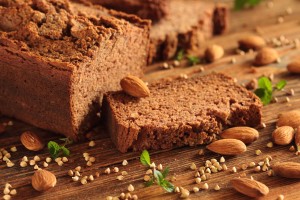 Some people find that excluding gluten from their diet gives them more energy. Don’t be tempted to start excluding a lot of foods from your diet; this could lead to serious deficiencies. Avoiding gluten or dairy products will not necessarily prevent flares; food “triggers” vary greatly from person to person. If you feel that you have problems processing certain foods, talk to your GP and ask for a referral to either a dietician or an allergy specialist within the NHS. There are commercial allergy tests available, but these are not always accurate and could cost you a lot of money but bring you no lasting benefit.
Some people find that excluding gluten from their diet gives them more energy. Don’t be tempted to start excluding a lot of foods from your diet; this could lead to serious deficiencies. Avoiding gluten or dairy products will not necessarily prevent flares; food “triggers” vary greatly from person to person. If you feel that you have problems processing certain foods, talk to your GP and ask for a referral to either a dietician or an allergy specialist within the NHS. There are commercial allergy tests available, but these are not always accurate and could cost you a lot of money but bring you no lasting benefit.
“Gluten and refined sugar makes me feel lethargic. They give me brain fog and generally make me feel rubbish! Egg also upsets my stomach, but I don’t know if that’s connected to my lupus!”
One way you can try to identify food “triggers” is to keep a food and symptom diary. By keeping a log of what you eat and the symptoms you experience, you may be able identify any trends. Allergy UK has a simple diary that you can print HERE.
“I find my main food problems are chocolate, cheese, tomatoes, pasta, white potatoes and bread. All of these cause extreme stomach bloating, my butterfly rash becomes more apparent, and my joints become more swollen and painful. I try to just cut these foods out but I just suffer the consequences if I don’t.”
“I’ve been following a low-carb, high-fat diet recently. It has helped tremendously with my brain fog, general energy level and mood. However, this diet is making my skin issues and joints worse. I know I have increased my dairy intake, so I am going to experiment with keeping the same diet but cutting out dairy.”
“I’ve been vegetarian for 34 years. Since diagnosis, I have developed an intolerance to chilli and alcohol. Other than that I eat healthily. If my skin flares up, I have to avoid tomatoes and caffeine.”
“Red meat gives me horrendous joint pains! Eliminating refined sugars and refined carbohydrates almost instantly alleviated my lupus fatigue!”
“I have given up sugar (except natural sugars), all soft drinks, pasta, chocolate, takeaways, and most processed foods/snacks. I have experienced a marked difference in energy levels and severity of flares, plus I have lost almost three stone in a year. I eat a simple diet, increase fruits/veg and I have found it has also helped with my stomach issues.”
Are there any foods that may help me manage my lupus symptoms?
Most people who have SLE have low levels of vitamin D and should take a vitamin D supplement regularly. Vitamin D is essential for proper function of the immune system and several studies have shown that people who have more severe lupus tend to have lower levels of vitamin D compared to those who have milder disease. It is advised to talk with your consultant or GP about your vitamin D levels as you may already be prescribed calcium supplements which may contain vitamin D. Some dietary sources of vitamin D can be found HERE. It is important to bear in mind that most vitamin D is usually synthesised from sunlight on the skin, but with lupus you should be protecting yourself from exposure to UV.
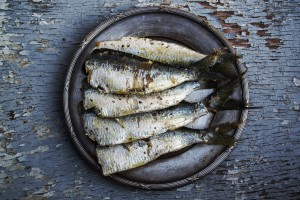 Omega-3 fatty acids appear to have beneficial effects on cholesterol levels and inflammation. Omega-3 fatty acids are abundant in certain foods, including cold-water fish (such as salmon, halibut, mackerel and sardines), flax seeds, walnuts, tofu, shrimp, and scallops.
Omega-3 fatty acids appear to have beneficial effects on cholesterol levels and inflammation. Omega-3 fatty acids are abundant in certain foods, including cold-water fish (such as salmon, halibut, mackerel and sardines), flax seeds, walnuts, tofu, shrimp, and scallops.
There have been several diet studies using omega-3 fatty acids in people who have lupus. A 2012 study looked at the eating habits of 114 SLE patients. They found that those who had a diet low in omega-3 fatty acids had worse lupus disease activity as well as higher levels of cholesterol and atherosclerosis (which can cause heart attacks and strokes). Therefore, it is important for people who have lupus to supplement their diet with foods rich in omega-3 fatty acids, olive oil, or supplements containing these oils. Not only may this  possibly improve lupus disease activity, but it may also improve cholesterol levels, which could help to decrease the risk of getting heart attacks, strokes and blood clots.
possibly improve lupus disease activity, but it may also improve cholesterol levels, which could help to decrease the risk of getting heart attacks, strokes and blood clots.
“Adding cod liver oil tablets (500mg) really helps control inflammation in my wrist and ankle. It meant I could reduce the amount of naproxen I take. I had to take them for a few months to see the improvement.”
Vitamins and supplements
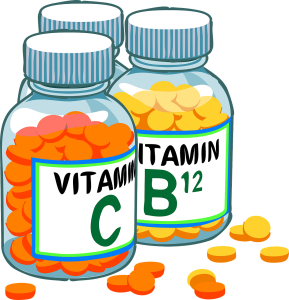 Vitamin tablets and supplements are not an alternative to eating healthily. It is always wise to talk with your GP or consultant about what supplements you wish to take as they can have a serious effect on some medications you may be on, such as warfarin. They may also suggest that you supplement your diet if they find that there is a deficiency. If you eat a good balance, particularly of fruit and vegetables, this should give you sufficient vitamins. It is relatively easy to overdose on the fat-soluble vitamins and this can be dangerous to your health (particularly vitamin A) as well as wasting your money.
Vitamin tablets and supplements are not an alternative to eating healthily. It is always wise to talk with your GP or consultant about what supplements you wish to take as they can have a serious effect on some medications you may be on, such as warfarin. They may also suggest that you supplement your diet if they find that there is a deficiency. If you eat a good balance, particularly of fruit and vegetables, this should give you sufficient vitamins. It is relatively easy to overdose on the fat-soluble vitamins and this can be dangerous to your health (particularly vitamin A) as well as wasting your money.
Alcohol
 Before drinking alcohol, first double-check with your doctor to make sure that it is not forbidden with your medicines. Prednisone, non-steroidal anti-inflammatory drugs (NSAIDs), acetaminophen, antidepressants, opioids, warfarin and methotrexate can potentially have more side effects if taken with alcohol. If you do drink alcohol it is very important to drink only in moderation.
Before drinking alcohol, first double-check with your doctor to make sure that it is not forbidden with your medicines. Prednisone, non-steroidal anti-inflammatory drugs (NSAIDs), acetaminophen, antidepressants, opioids, warfarin and methotrexate can potentially have more side effects if taken with alcohol. If you do drink alcohol it is very important to drink only in moderation.
Numerous studies suggest that moderate intake of alcohol may decrease the risks of developing cardiovascular disease problems, increase HDL good cholesterol levels, and may even decrease the risk for certain cancers. However, the sugar it contains will increase your calorie consumption (potentially contributing to weight gain) and regular alcohol consumption may increase the risk for breast cancer.
“I find wine from Europe better and believe there is less added than in hotter places during the fermentation process, but I could be wrong. Gin or beer seems to be less ill-making!”
How can I continue to eat healthily during a flare?
Due to fatigue, weakness and pain many people with lupus may experience difficulty preparing meals, especially during a flare. Here are a few tips to help you stick to your healthy eating plan whilst fighting lupus;
Ask for help
There is nothing wrong with asking for help if you need it. You might feel unable to do any kind of cooking for yourself, and you might have to rely on others. If this is what you need, don’t feel bad about it – just do what you need to do to nourish yourself.
Batch cooking
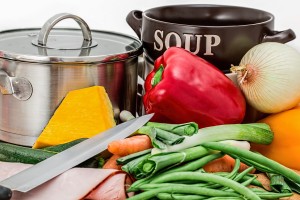 You may wish to cook extra food on your good days so that you can conserve your energy on another day. You can keep the extra meals in the fridge or freezer. Do ensure that these meals are thoroughly re-heated before you eat them; the centre of the meal should be hot as well as the outer edges.
You may wish to cook extra food on your good days so that you can conserve your energy on another day. You can keep the extra meals in the fridge or freezer. Do ensure that these meals are thoroughly re-heated before you eat them; the centre of the meal should be hot as well as the outer edges.
“I make big batches of food on Sundays; often soup, chilli con carne or curry. I also have a few ‘easy’ meals in the freezer (like pies or battered fish) for quicker cooking on bad days.”
“I make the most of a good day and food prep! I make healthy meals that can be frozen and just grabbed to put in the microwave on a bad day.”
Slow cooking
Baking foods in the oven (or slow cooking) can give you an opportunity to rest after the preparation stage and then you can do any final detail after an hour or two’s rest.
“I use my slow cooker as I’m better in mornings; then I don’t need to worry when I’m exhausted at tea time.”
Acquire special equipment
If you have difficulty with certain tasks in the kitchen due to stiffness, pain or weakness, there is a wide range of special equipment available that can make things easier. You can find details about many of these products for homes and kitchens HERE. You may wish to discuss the possibility of being referred to your rheumatology clinic’s occupational therapy team so that you can have your individual needs assessed.
“I have a perch stool. I got it from social services as advised by my occupational therapist. “
“When it comes to fresh food, a food processor is a God-send. I use it to cut all the veggies for soup etc. saving my wrists and stopping me from having to stand for so long. I also have a perch stool so that I can sit and work if needed, and utensils with easy grips. All of it just makes cooking fresh, healthy food that wee bit easier.”
Further Reading
LUPUS UK – LUPUS and Healthy Eating Booklet
The Lupus Foundation of America – 15 Questions about Lupus and Healthy Eating
NHS Choices – Eating a Balanced Diet
British Nutrition Foundation – Healthy Eating
Vegetarian Society – Health & Nutrition
The Vegan Society – Nutrition & Health
The British Association of Dieticians – BDA Food Fact Sheets
Diabetes UK – Enjoy Food
Kidney Research UK – Kidney Care Cookbook
Weight Concern – Healthy Eating
NCT – Pregnancy Nutrition
***Please note that this article is written for informational purposes only and should not be a substitute for professional medical advice or treatment. Do not delay seeking or disregard medical advice based on information here. Always seek the advice of your local family physician or other qualified health professional before starting any new treatment or making any changes to existing treatment. It is also advisable to consult a medical professional before making any changes to diet or starting alternative remedies, which may interact with other medications.***
Thank you so much to everybody who submitted their tips and experiences for this month’s topic. We’re sorry if we weren’t able to use your comment in the article this time.

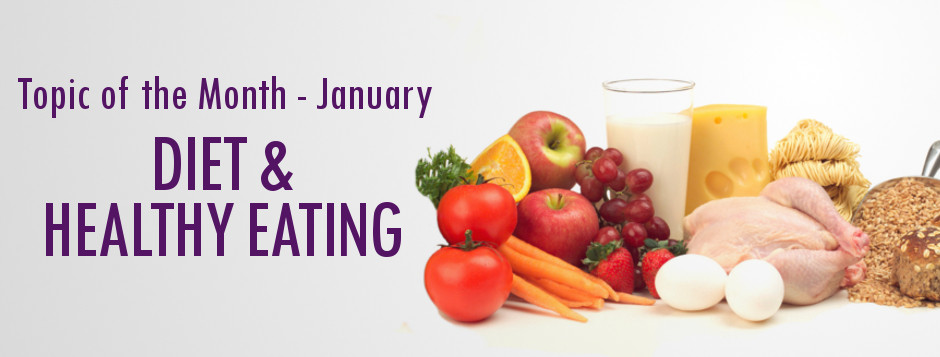
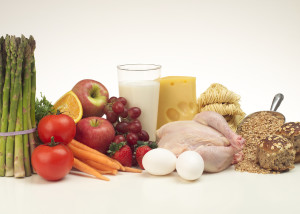

 ©2024 LUPUS UK (Registered charity no. 1200671)
©2024 LUPUS UK (Registered charity no. 1200671)